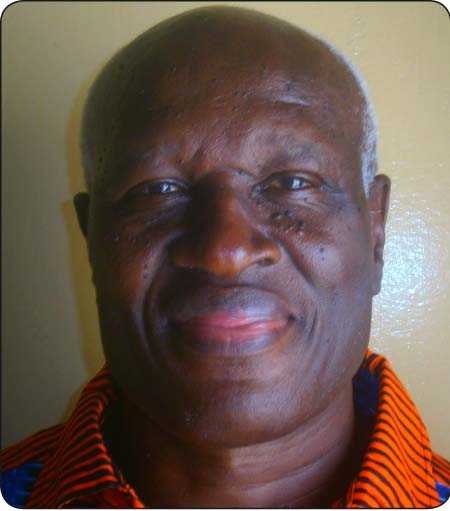
“For God does speak---now one way, now another---though man may not perceive it.” (Job 33:14)
After
creating Adam, God put him in the Garden to tend it. Then He gave him one
single instruction: “You are free to eat from any tree in the garden but you
must not eat from the tree of the knowledge of good and evil, for when you eat
of it you will surely die.” (Genesis 2:16-17) This simple instruction was later
reframed by Eve to say that God did not only forbid the eating of the fruit but
touching it as well. God speaks in very simple but clear language to avoid
being misunderstood. The problem is that when we want to do things our way, we
can always find suitable excuses to back our disobedience.
John
exhorts in his epistle that God’s commands are not burdensome. (1 John 5:3b)
God gives instructions taking into consideration the circumstances at hand and
the probable consequences when we fail to comply with them. Our Lord Jesus
summed up The Ten Commandments into two. “Love the Lord your God with all your
heart and with all your soul and with all your mind.” (Matthew 22:37) which He
called the greatest. “And the second is like it: ‘Love your neighbour as
yourself.’ (verse 39) In the Old Testament it is written; “And if we are
careful to obey all this law before the Lord our God, as he has commanded us,
that will be our righteousness.” (Deuteronomy 6:25)
God
wanted us to be in right standing with Him because obeying all the laws was a
guarantee of our righteousness; to be what God wanted us to be. If the motive
was not love, what then could it have been? He made these laws for our
well-being and protection not out of any obligation.
He
made us and He knows our limits and how well we can adapt. It is all a matter of trust. How well do we
know Him to trust Him? Jesus asked his disciples to love Him by obeying His
commands. “If you love me, you will obey what I command.” (John 14:15) We are
his present-day disciples; we also ought to obey His commandments given for our
good.
Jonah,
a prophet of God received this instruction from God: “Go to the great city of
Nineveh and preach against it, because its wickedness has come before me.”
(Jonah 1:2) Why was that a difficult instruction to carry out? Because prophet
Jonah had no intention of letting God save the wicked people of Nineveh from
destruction. Left to him, he wanted them all dead. The instruction was to go
east but he went west, forgetting that no one could flee from God’s presence.
God is everywhere.
He
met with no end of problems; was thrust overboard a ship and swallowed by a
whale. There he prayed for mercy and God granted it. He was vomited ashore.
“Then the word of the Lord came to Jonah a second time: ‘Go to the great city
of Nineveh and proclaim to it the message I give you.’ ”(Jonah 3:1-2) He
finally went. With God you can run but cannot hide.
Prophet
Elisha ordered general Naaman to dip himself in lake Jordan seven times in
order to receive his healing. He sulked and said: “Are not Abana and Phatpar,
the rivers of Damascus, better than any of the waters in Israel? Couldn’t’ I
wash in them and be cleansed? ” (2 Kings 5:12) For his arrogance, he would have
missed such a unique opportunity to get healed---having travelled a long distance,
all the way from Syria, for this. He was saying ‘don’t you know I am a great
general to dip myself in this dirty lake.’ One of his servants saved the day
when he said to him. ‘Master if the prophet had asked you to accomplish a feat
you would have done so. All he is asking you is to dip yourself in the lake
seven times and receive your healing.’
Our
Lord Jesus borrowed the boat of some fishermen to preach by the lake, because
there was a large crowd. After he finished preaching He asked one of them to move
ahead a little and throw his net for a catch. “Put out into deep water, and let
down the nets for a catch.” (Luke 5:4) One of the sailors argued that they had
fished all night but caught nothing, but ‘by your word’ he cast his net and
caught loads of fish to the extent that they had to request help from fishermen
nearby.
Our
Lord Jesus told the parable of two brothers who received instructions from
their father to go and do some work in the farm. The one who answered ‘yes,’
did not show up; the one who initially said ‘no’ turned up. Jesus asked the
question who was the obedient one? Obviously the one who obeyed.
And
so it will be for us believers when we obey our Lord and Saviour and do His
bidding. His commands are not burdensome. They were meant for our good.




